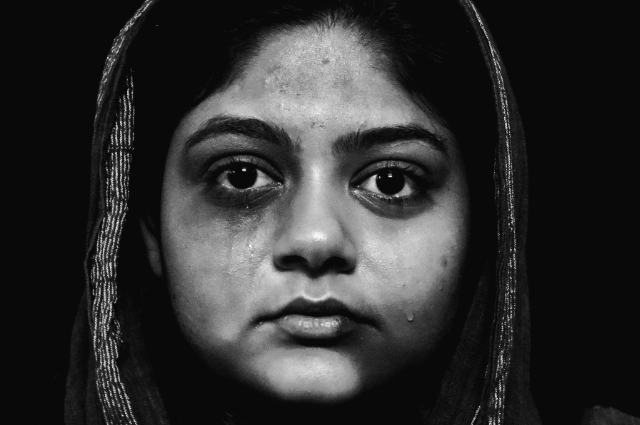
Photo by Sneha Sivarajan on Unsplash
Chhattisgarh High Court ruled that “unnatural sex” done by the husband (with or without consent) does not constitute marital rape; hence it is not considered an offence.
“The court was hearing an appeal filed by a 40-year-old Bastar district resident against his conviction in a case pertaining to the death of his wife in 2017. A sessions court had held that the woman became ill [and died subsequently] owing to forced physical relationship”, The Hindu stated.
He was convicted under Sections 377 (for unnatural sex), 376 (punishment for rape) and 304 (culpable homicide not amounting to murder) of the Indian Penal Code. The trial court sentenced him to 10 years of imprisonment and the conviction was based on the dying declaration the wife had made. The dying declaration made by the victim was recorded by the district magistrate and it stated that her illness was a result of the sexual intercourse that was forced upon her, reported by the Hindustan Times.
On the 10th of February, the appellant was acquitted by Justice Narendra Kumar Vyas of the High Court of Chhattisgarh. His order read, “In the present case, the appellant is a ‘husband’ and victim is a ‘woman’ and here she is a ‘wife’ and parts of the body which are used for carnal intercourse are also common, therefore, the offence between husband and wife cannot be made out under Section 375 of IPC.”
“Thus, it is quite vivid, that if the age of wife is not below 15 years, then any sexual intercourse or sexual act by the husband with her wife cannot be termed as rape under the circumstances, as such absence of consent of wife for unnatural act loses its importance, therefore, this court is of the considered opinion that the offence under Section 376 and 377 of the IPC against the appellant is not made out.”
The Supreme Court was assessing multiple petitions filed for the criminalisation of marital rape, but the hearing was suspended due to the retirement of Chief Justice of India DY Chandrachud who was heading the hearing.
“The Centre maintains that protection of the institution of marriage is essential and there is no need to criminalise marital rape. So it is not within the court's purview to take a decision on the matter”, NDTV reported.
“During the hearing, the government also maintained that parliament has provided several measures to protect the consent of a married woman within marriage.”
Section 375 of the IPC and 63 of the Bharatiya Nyaya Sanhita (BNS) both include the exception that states that “sexual intercourse or sexual acts by a man with his own wife, the wife not being under the age of 15(IPC) and 18(BNS) is not rape.”
This exception rendered the other sections that have been violated in this case as an empty casket. There is no scope to address marital rape as there is no specification of consent in this exception, so when it is non-consensual, it will not be treated as such as this clause excludes the sexual relationship of the marriage institution from the definition of rape.
Following the sections of the IPC addressed in this case, section 375(b) which states that a man is said to commit rape if he inserts, to any extent, any object or a part of the body, not being the penis, into the vagina, the urethra or anus of a woman or makes her to do so with him or any other person. The prosecution had referred to the forceful sexual act that had contributed to the death of the victim as the man inserted his hand into her anus.
The trial court had convicted the appellant in 2019, but despite the argument put forward by the prosecution, Justice Narendra Kumar Vyas overturned it.
The Supreme Court has been consumed with a compilation of petitions which challenge the constitutional validity of this exception, as it discriminates against married women that are sexually assaulted by their husbands.
Section 376(2) (m) of the IPC states that, whoever, while committing rape causes grievous bodily harm or maims or disfigures or endangers the life of a woman shall be punished with rigorous imprisonment for a term which shall not be less than ten years, but which may extend to imprisonment for life, which shall mean imprisonment for the remainder of that person's natural life, and shall also be liable to fine. This clause under section 376 was also violated, and the accused was acquitted of this crime. And section 377 deals with unnatural offences, the high court overturned this claiming that this was not an offence while referring to it as “unnatural sex”. And section 304 in reference to the provision for this case which states that whoever commits culpable homicide not amounting to murder shall be punished with imprisonment of either description for a term which may extend to ten years, or with fine, or with both, if the act is done with the knowledge that it is likely to cause death, but without any intention to cause death or to cause such bodily injury as is likely to cause death.
The union government argued that the removal of this exception could quite possibly ruin the institution of marriage, as if the act of rape isn’t ruining the institution of marriage? The BNS does not contain a provision equivalent to section 377 of the IPC to specify non-consensual unnatural sex as an offence at the very least if not rape, which it is. Hindustan Times commented on this provision not being corrected and reiterated from the IPC to the BNS.
